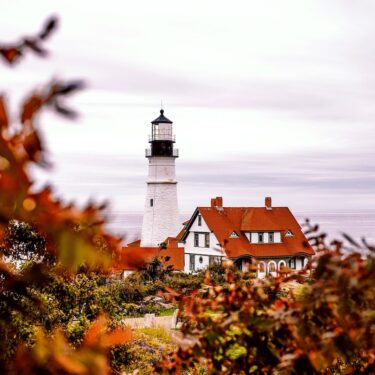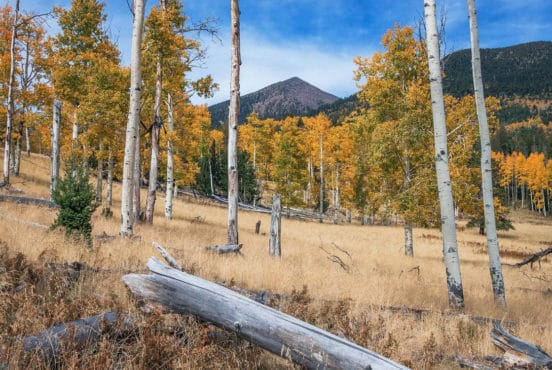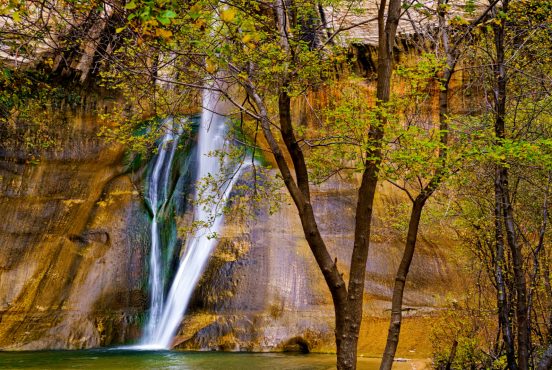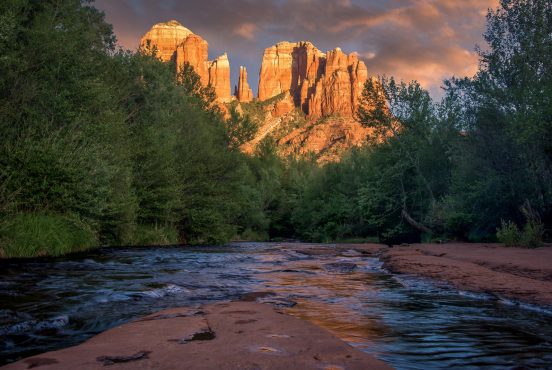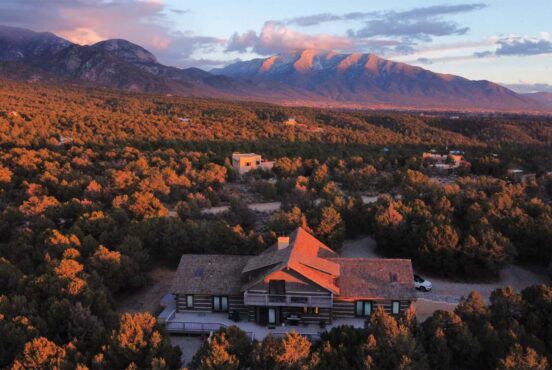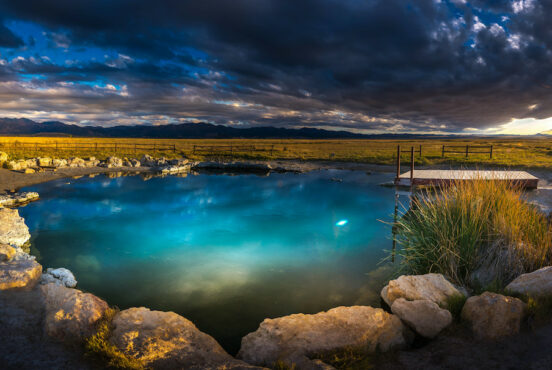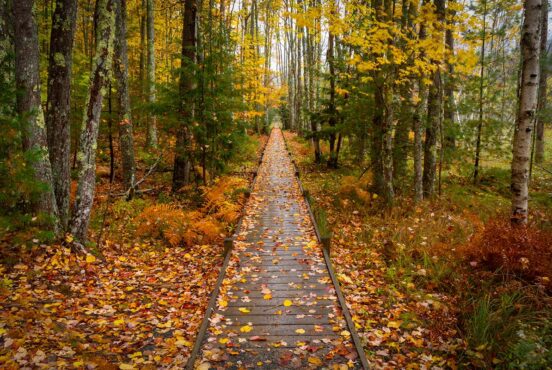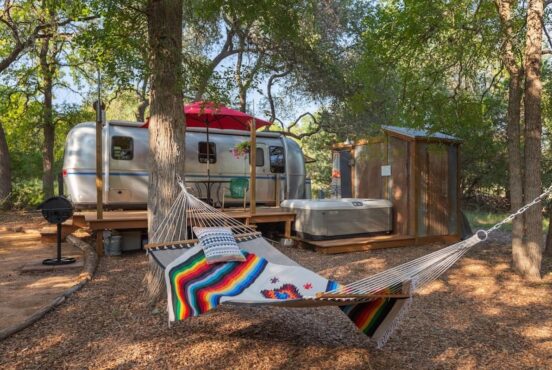Fall colors? In Arizona? Yep, that’s right. Despite its reputation as a gigantic desert full of sand and cactus, Arizona offers plenty of autumn action too.
With elevations ranging from nearly sea level to 12,633 feet, Arizona is home to a surprisingly diverse number of ecosystems — including ones where you’ll find deciduous trees. Yes, the type of trees whose leaves turn colors in the fall!
Renowned landscape photographer Derek von Briesen dubbed it “Arizona’s Almost Endless Autumn” because you can spend nearly three months following the fall colors as they trickle down from the forested high country to the desert creeks.
Of course, Arizona isn’t one of those states where you can drive pretty much anywhere and see the colors. You really have to know where to go, and sometimes get out of the car and take a hike.
This fall color guide will get you in the right vicinity — just remember that the colors can depend on factors like temperature (a cold snap can accelerate the change) and previous rainfall (a dry year can make it a dud).
It can take a few tries of visiting a specific spot (sometimes over two or three years — or more!) to catch the peak color. Be patient, and be ready to share the views with others as many of the top autumn locales are popular ones too.
Related Read: 12 Best Hikes in Arizona, From Desert to Tundra
1. Oak Creek Canyon & Sedona
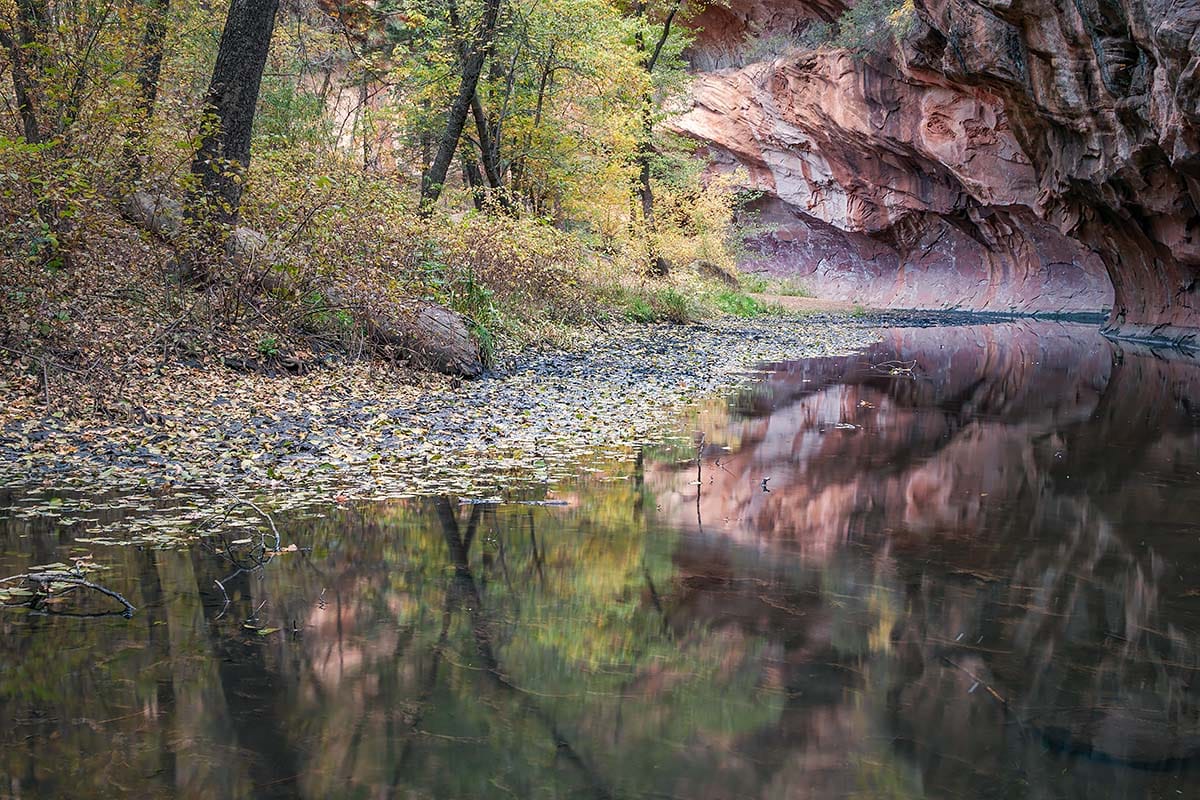
Why you should go: Fall foliage and world-class red rock views are a tasty combination.
- Nearest town: Sedona
- Peak foliage: early-October to mid-November
No matter what the season, Highway 89A through Oak Creek Canyon is an incredible drive, with soaring red and buff sandstone cliffs, a bubbling creek, and a surprisingly diverse forest. However, autumn is perhaps the most magical time to visit, when you can see shades of red, gold, yellow, and maroon from a wide variety of species — sycamore, oak (of course), maple, ash, walnut, and more.
About 10 miles north of Sedona is the most popular fall hike in the state: West Fork of Oak Creek (peak foliage mid-October). This easy and idyllic stroll is a must-do at least once, but plan to arrive early as the parking lot (fee required) fills up fast. Also consider picnic areas (Bootlegger and Banjo Bill), campgrounds (Pine Flat and Cave Springs), and Slide Rock State Park for leaf peepin’ in the canyon.
In November, fall makes its way down into Sedona proper. You can spy the changing Cottonwoods from Highway 89A in town, but also consider a hike on Huckaby Trail or Airport Mesa Loop for fall views above the creek — or a visit to the iconic (and often busy) Red Rock Crossing for a creekside meander.
Related Read: Red Rock Hiking: 16 of the Best Sedona Hikes
2. San Francisco Peaks
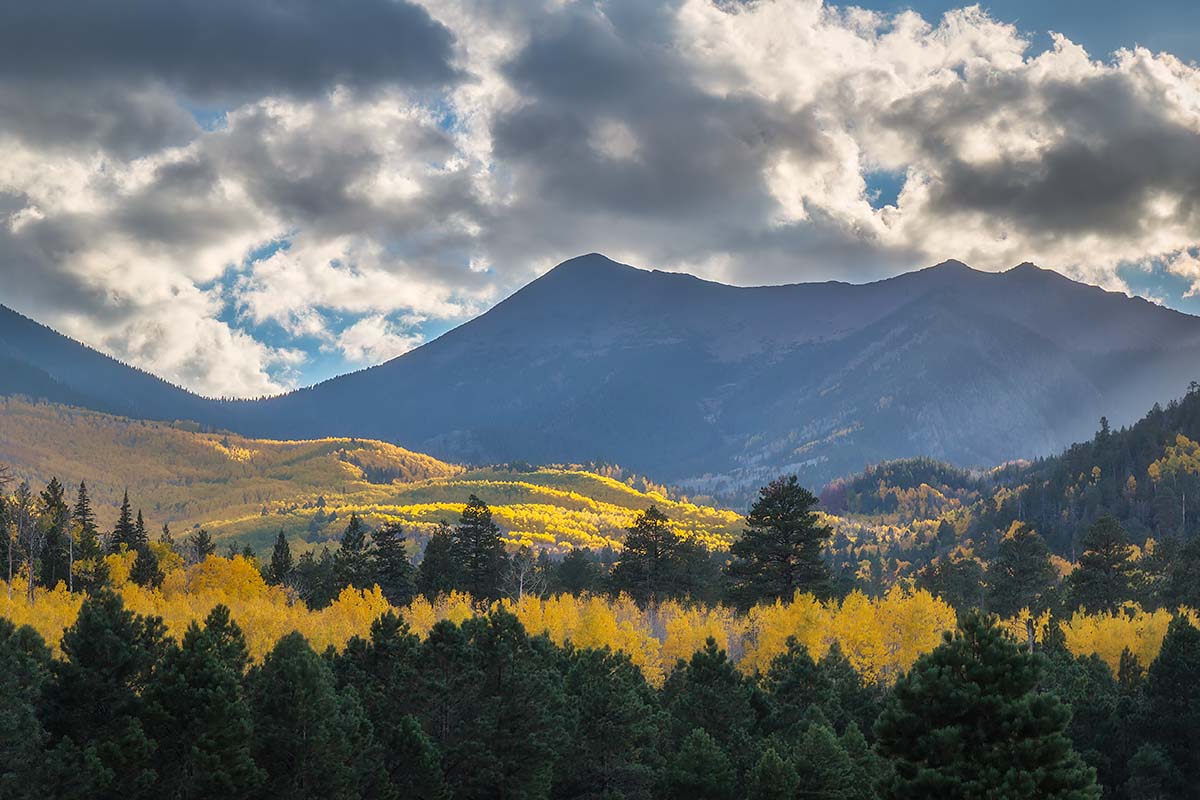
Why you should go: If you can’t wait to peep leaves, this is one of the first places to get some foliage.
- Nearest town: Flagstaff
- Peak foliage: late-September to mid-October
On the mountain slopes below the highest peaks in Arizona, you’ll find golden groves of Quaking aspen and epic mountain views. Prepare for an out-of-body experience like you’re in Colorado instead of Arizona.
The aspen first show their colors on the north side of the mountain in late-September (hike the Abineau-Bear Jaw Loop to get up close), while the rest of the mountain turns in early to mid-October. If you prefer to take in the views from the roadside, you’ll want to head up Snow Bowl Road (be ready for crowds) or Hart Prairie Road (a rocky-in-places dirt road).
For those ready to hit the trail, the two most impressive fall color hikes on “The Peaks” are the Inner Basin Trail and Kachina Trail (use the “lower” Freidlein Prairie Trailhead). For short and easy options, consider the Veit Springs Trail or the Aspen Nature Loop, both of which are accessed from Snow Bowl Road.
Related Read: 30 Incredible Flagstaff Hikes
3. Mogollon Rim
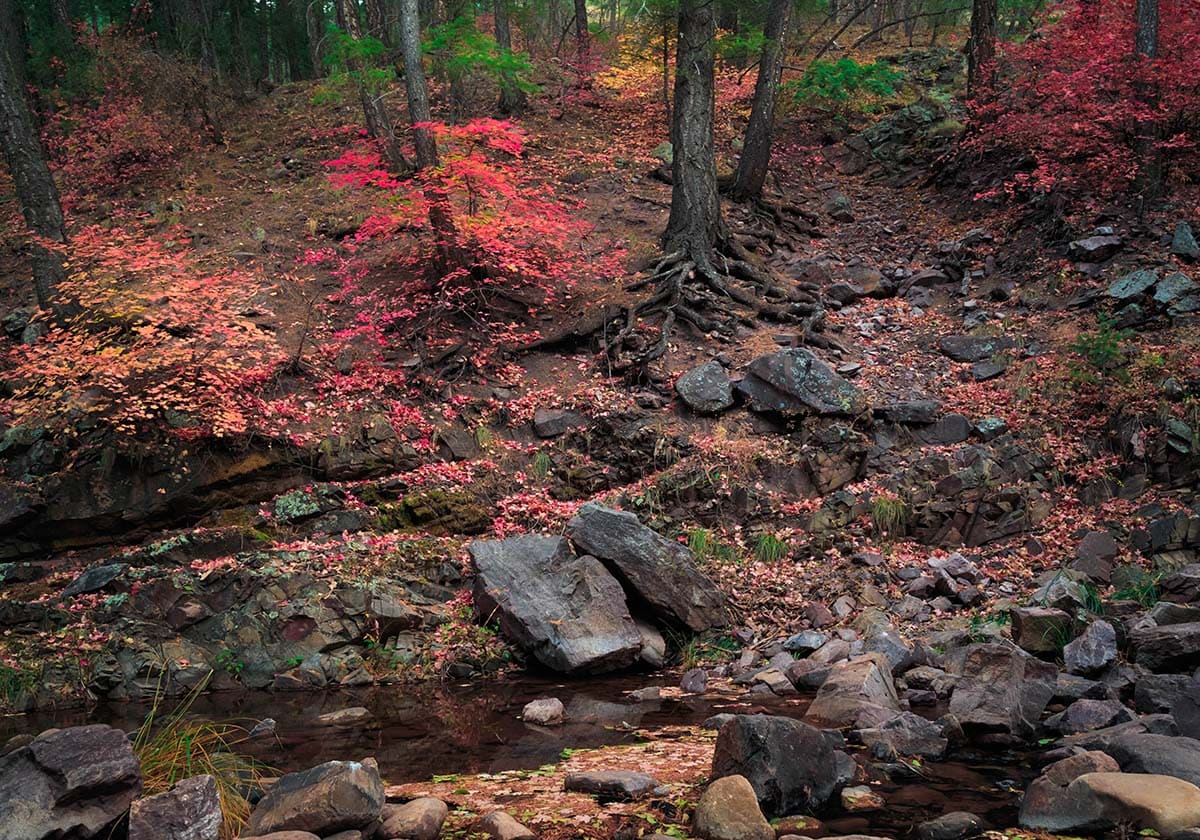
Why you should go: Combine your fall color exploration with fishing, camping, or four-wheeling.
- Nearest town: Payson
- Peak foliage: October
The Mogollon Rim is a favorite place for Phoenicians to escape the summer heat, but it’s also great in the fall. The most spectacular (and popular) fall hike in the area is the Horton Creek Trail (get there early), but nice foliage can also be seen by hiking See Canyon or Barbershop Canyon. If you’re looking to camp with the maximum foliage potential, check out the Christopher Creek Campground.
Up at the Rim Lakes, the crowds are lighter but the foliage is mostly limited to the rustic browns of Gambel oak hanging out underneath the tall pines. For a more vibrant splash of autumn, it’s worth it to make the drive out to Bear Canyon Lake where — if you time it right — you might catch a grove of golden aspen reflected in the water. Once you’ve gotten your foliage fix, there’s plenty of fishing and four-wheeling to be had at the Rim Lakes — and without the summer crowds.
Related Read: Guide to Hiking & Camping on the Mogollon Rim
4. White Mountains
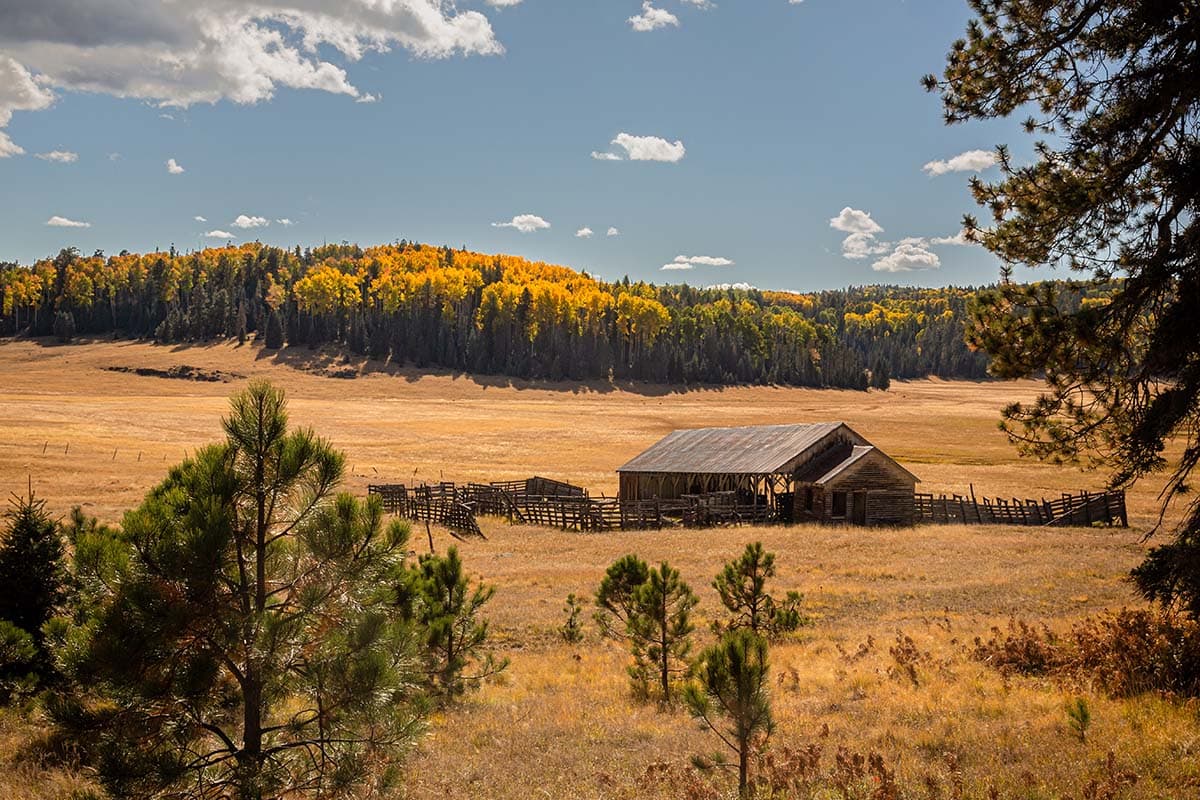
Why you should go: Escape from civilization to aspen groves of Arizona’s wettest region.
- Nearest town: Pinetop-Lakeside
- Peak foliage: Late-September to mid-October
Eastern Arizona’s White Mountains fly under the radar of most Arizonans — unless you’re the type that seeks out adventures in all corners of the state. It’s a solid four hour drive from Phoenix to get up here, so the extra distance tends to filter out the crowds. But if you’ve got the extra time and gumption, the White Mountains will reward you with crisp air, nice foliage, and plenty of solitude.
There are pockets of Quaking aspen and Gambel oak all over “the Mountain” (as locals call it), but the most classic aspen spot is Escudilla Mountain. Escudilla got torched by the 2011 Wallow Fire (as did most of the White Mountains), so the forest isn’t the spectacle it once was, but there’s still foliage to be seen, and will continue to improve in the coming years as the aspens regenerate. Hike the Escudilla Trail to reach the stunning vista at the top, or consider the nearby Terry Flat Trail for something less strenuous (and mountain bike friendly).
The best autumn drive in the region is the 30-mile stretch of Highway 260 and Highway 273 from Pinetop-Lakeside to Sunrise Lake. Also consider a detour over Greer and catch the leaves changing along the Government Springs Trail — and then grab a bite to eat at the restaurant at Molly Butler Lodge. The nearby Pine Knoll Recreation Area is a great hiking spot to see the aspens with options for all skill levels.
Related Read: 10 Peaceful Cabin Rentals in Greer, Arizona
5. Grand Canyon
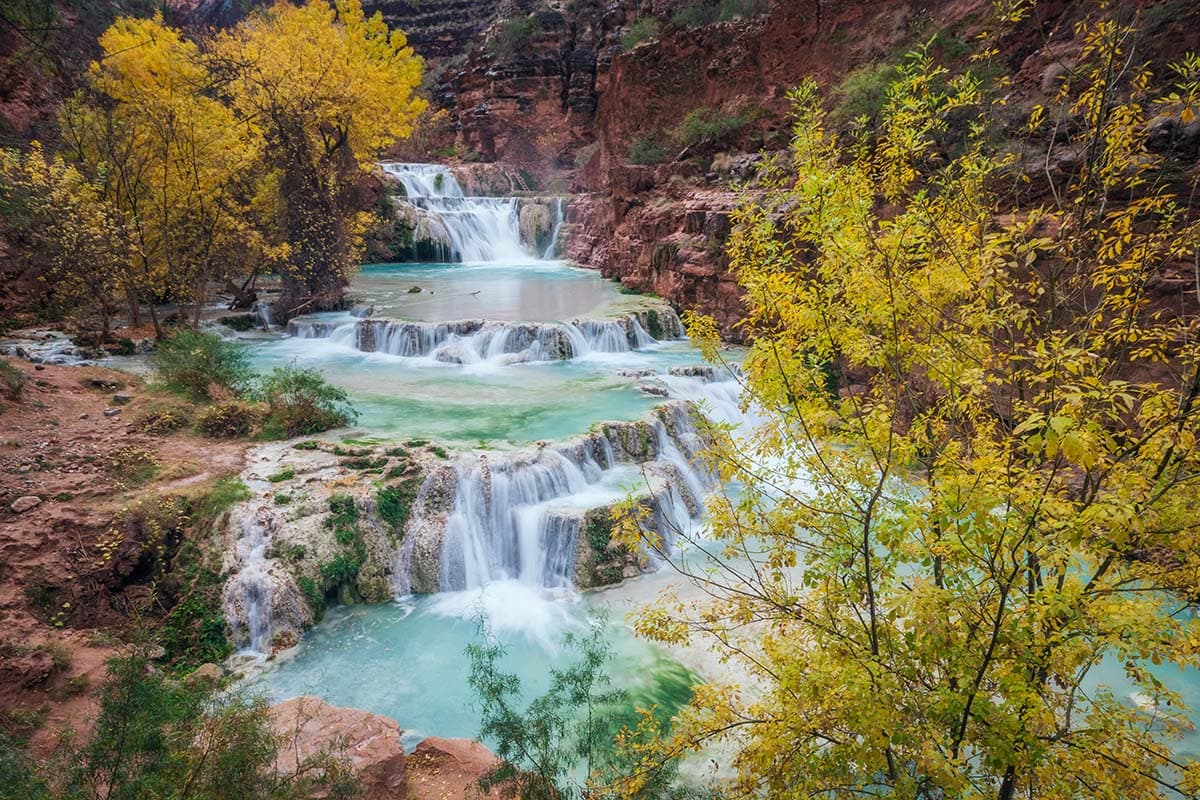
Why you should go: Experience autumn from atop the North Rim or along the creeks of the inner canyon.
- Nearest town: Jacob Lake / Tusayan
- Peak foliage: Late-September to mid-December
With an average elevation of 8,000 feet, Grand Canyon’s North Rim is another awesome early season option. The best aspen groves are found by driving the dirt roads in Kaibab National Forest to the north of the national park boundary, while the Uncle Jim Trail offers both changing aspens and epic Canyon views.
Later in season, the giant Cottonwoods along the Canyon’s network of desert creeks put on their own show from mid-November on into December. In November, Havasu Canyon’s contrasting mix of yellow leaves and teal-blue water is the most spectacular — but permits are hard to come by (and currently suspended due to COVID-19).
In December, your best bet is tackling a challenging hike to the fall colors along Bright Angel Creek. Unless you’re in the right physical shape to do it as a day hike (not recommended by the NPS), you’ll want to stay overnight at either Bright Angel Campground (backcountry permit required) or Phantom Ranch (lottery reservation required).
Related Read: 8 Best Grand Canyon Airbnbs for Adventurous Travelers
6. Lower Salt River
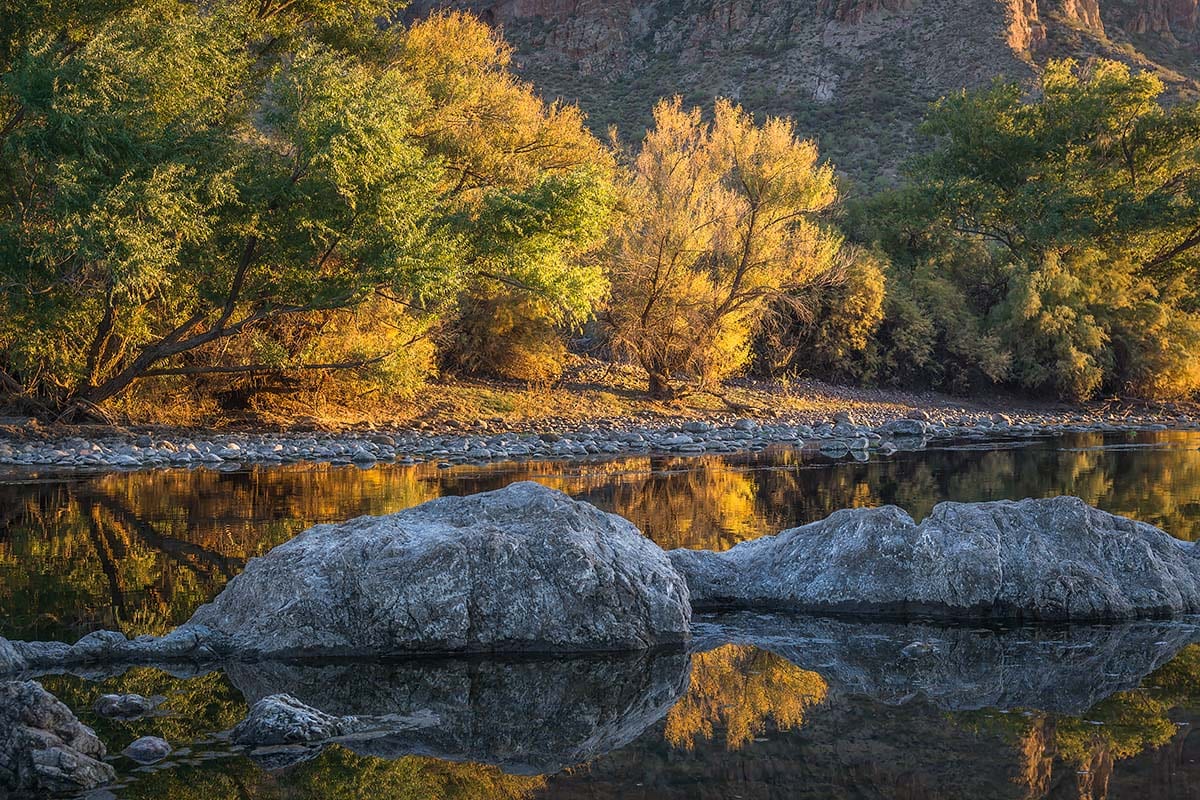
Why you should go: Contemplate the golden leaves and soaring cliffs among wild horses.
- Nearest town: Phoenix
- Peak foliage: Late-November to early-December
Infamous for its summer “tubing” party scene, the Lower Salt River is a quieter place in the fall. This stretch of desert river is an easy drive from the Phoenix area, especially the East Valley.
The most spectacular spot for fall colors is Water Users Recreation Site, where you can snap some sweet photos of the water reflecting the leaves and rugged Bull Dog Cliffs. There aren’t any hiking trails at this particular site, but you can explore the banks nearby, and potentially spot some of the area’s beloved wild horses.
There are also plenty of other riverside stops along the Bush Highway to check out, as well as the best fall color hike in the area: Lower Salt River Nature Trail at the Phon D. Sutton Recreation Area. Note: a Tonto Pass is required to park at all Lower Salt River recreation sites.
Related Read: 11 Best Places to Go Camping Near Water in Arizona
7. Aravaipa Canyon
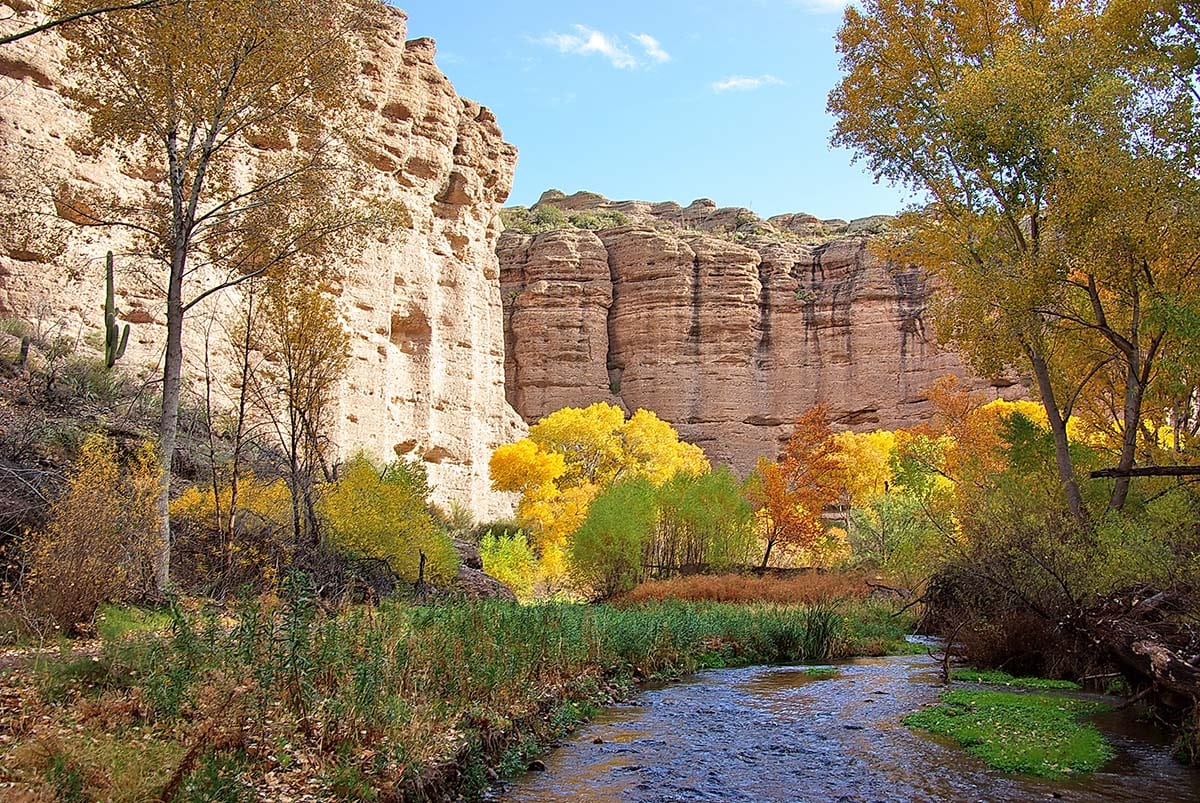
Why you should go: Tackle an off-the-radar and foliage-rich backpacking trip.
- Nearest town: Winkelman
- Peak foliage: Late-November to early-December
The rugged and spectacular Aravaipa Canyon Wilderness sits in a remote corner of Southern Arizona. For photographers and backpackers, it’s a great place to escape civilization while experiencing some of the best desert riparian fall foliage in the state. This is one of a select few places in the state where you can stand in one spot and see a bubbling creek, golden autumn leaves, saguaro cactus, and desert bighorn sheep gazing down from the sunbaked cliffs.
Even a day hike requires a permit, and fall is the most popular time to visit, so be proactive about snagging a reservation. Three days / two nights is the longest the Bureau of Land Management will grant a permit, so be sure to make the most of your time exploring this special canyon.
There are two trailheads from which to enter Aravaipa, with the west trailhead as the most popular due to ease of access. However, if you have the time and wherewithal to make the rugged drive to the east trailhead, the canyon is even more beautiful over there.
Explore More in Arizona
Sign up for Weekend Wanderer to join 10,000+ readers getting epic travel ideas every week.
Seen in: Arizona, Fall Colors, Southwest

